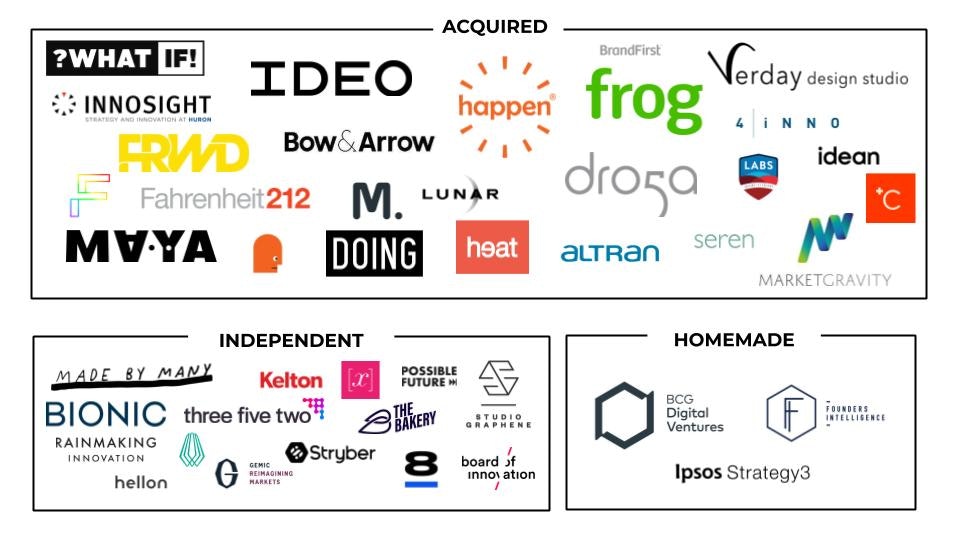Consumer
Disrupting hygiene
Personal care company Essity just launched a venture arm and is looking to invest in purpose-driven health and hygiene startups.
Cybersecurity
Securing sensors
Telefónica Innovation Ventures invested in cybersecurity company Nozomi Networks. The San Francisco-based startup provides security for the internet of things networks that are increasingly being used by manufacturing, transport and utility companies.
Energy
Salty batteries
ABB Technology Ventures was one of the investors in the $35m series D funding round for Natron Energy, a California-based company developing batteries based on sodium-ions and a deep-blue pigment called Prussian Blue.
The energy density of sodium-ion batteries is not great, but they are potentially cheaper to make than lithium-ion batteries, don’t require conflict minerals and are less flammable, all of which might make a good alternative for energy storage.
There is a good explanation here of why sodium-ion batteries might be superior to lithium batteries.
Spreading the sunshine
Energy companies Innogy and EDP took part in the $1.1m funding round for SOLshare, a Dhaka-based startup that helps set up solar power microgrids in Bangladesh. Owners of home solar power systems can trade their surplus electricity to neighbours, helping cut the use of polluting fuels like diesel and kerosene.
Financial services
Marine insurance
CommerzVentures has invested $6m into Concirrus, a London-based insurtech company specialised in marine and automotive insurance.
Digital credit tools
Barclays was one of the backers of the €500,000 pre-seed funding round for Oper, a Swiss startup that helps fintech companies open digital credit products faster. Another fintech “shovel-seller” that could be good to watch.
Food and drink
Online mercato
Cassa Depositi e Prestiti, the Italian investment bank, was one of the backers of the €3.5m seed round for Soplaya, an online marketplace which allows restaurants to acquire food directly from producers.
New programme
Rabobank has launched a new six to nine month corporate innovation programme, FoodBytes! Pilot, which replaces its TERRA accelerator.
Healthcare
Disability tech
AXA Venture Partners and Intel Capital were among the investors in the $7.7m series B round extension for K4Connect. The US-based startup provides voice assistance and home automation as well as digital messaging for seniors and adults living with disabilities. The company was founded by Scott Moody, whose previous company, AuthenTec, was sold to Apple and became the basis of Touch ID.
On a Mission
Pfizer Ventures led the £12m funding round into Mission Therapeutics, a Cambridge-based drug discovery company developing drugs that will selectively inhibit deubiquitylating enzymes (DUBs). DUBs play a role in a number of diseases including cancer, autoimmune disorders and chronic inflammation. Roche Venture Fund also took part in the round.
Making sure the drugs work
MACSF, a French insurance provider for healthcare professionals, led the $8m funding round for Synapse Medicine, a Bordeaux-based startup developing software to ensure the safety of prescription drugs. Incorrect use of medicines kills some 30,000 people a year in a country like France, according to the startup.
Mobility
Ethical cars
Volvo Cars Tech Fund invested in Circulor, a British blockchain company that allows manufacturers to trace the origin of the materials they use. Volvo already traces the origin of the cobalt used in its batteries using blockchain, but following a deal with Circulor should be able to trace other minerals as well, such as the mica used for insulating battery packs. Total Ventures also took part in the deal.
Mapping buildings
NavVis, which provides digital twin technology for companies like BMW, Daimler, Allianz, Audi, and Skoda, won €20m in financing from the European Investment Bank. The German startup allows companies to map their indoor spaces like office buildings and factories and construct highly accurate digital models of them, for construction and maintenance.
Real estate
Opening French doors
AXA Venture Partners led the $5.8m funding round into Unlatch, the French digital real estate company.
Robotics
Commanding a robot army
Alfred Kärcher, maker of the yellow pressure washers and other cleaning equipment, backed the $2.6m seed round of InOrbit, a Californian software-as-a-service company that helps companies deploy and manage thousands of autonomous robots on their system.
Autonomous cleaning robots are a major trend in the industry and software like InOrbit’s will help Kärcher manage its fleet.
Software
Mapping your IT
Deutsche Telekom Capital Partners was one of the investors in the $80m series D round for LeanIX. The German company is the “Google Maps” for IT infrastructure, helping companies get a grip on the spaghetti of legacy software that run their systems and managing the new SaaS they are buying in.
Who's hiring?
Innovation director, Oxford Innovation, Haverhill, UK
Senior director external innovation, Johnson & Johnson, London, UK
Head of digital innovation and service team, Berlin Chemie, Berlin, Germany
Global ideation & innovation specialist, Munich Re, Munich, Germany
Global brand innovation manager, Essity, Munich, Germany
Head of drug delivery innovation, Bayer, Berlin, Germany
Director innovation ecosystem & partnerships, Ericsson, Stockholm, Sweden
Good reads
Intrapreneurs are not just entrepreneurs working inside large companies
Employees working in large organisations create over 70% of transformative innovations, points out Tendayi Viki in this Forbes article. But the hero-worship of entrepreneurs means we often ignore these quiet innovators. They are a different beast to the celebrity tech-bros — more consensus-building and politically astute. No Elon Musk-style enfants terribles need apply.
Why is the pharma industry so slow to adopt AI?
Adoption of AI in the pharma industry has been “painfully slow” according to this white paper co-authored by INSEAD, Agalio and Early Metrics.
There are very few healthtech unicorns in Europe (BenevolentAI and Doctolib are part of that rare handful). Compared to financial services, another big and heavily-regulated sector, usage of AI is incredibly low. In fact, many AI startups that start focusing on healthcare end up pivoting to financial services to stay alive.
The paper looks at why things are this bad — and whether there is hope of change.


